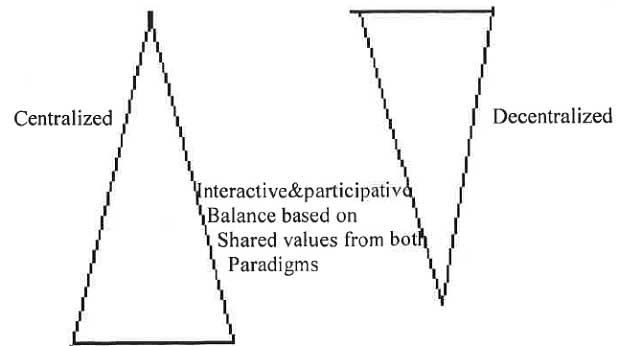By: Md Pathik Hasan
Discriminatory policies of Myanmar, such as exclusionary citizenship laws, since the late 1970s, have driven hundreds of thousands of Rohingyas, an ethnic Muslim minority group in Myanmar, to flee. They became stateless in their own ancestral land, denied citizenship, violently persecuted. Resulting in periodic waves of displaced Rohingya fleeing for neighboring countries, most of them to Bangladesh, while others have gone to India, Pakistan, China, Indonesia, Malaysia, Saudi Arabia, and Thailand. Currently, an estimated 3.5 million Rohingya refugees scatter across the world. Of now, they fall in between the cracks in the international system. They are unlikely to be repatriated back to Myanmar, nor did the international community, except Bangladesh, come forward to protect them.
In 1977, the Saudi King Khalid Bin Abdul Aziz Al Saud as liberal as human eyes accepted thousands of Rohingya refugees fleeing persecution in Myanmar in Saudi Arabia. Now, Riyadh sent a list of almost 55,000 Rohingya refugees and demanded Bangladesh to provide them the Bangladeshi passports as the kingdom “doesn’t keep stateless people.” The list in which many of the refugees have never even been to Bangladesh and have little knowledge of the nation. Even the offspring of those Rohingyas were born in Saudi Arabia and who speak Arabic denied Saudi citizenship.
Historical Background:
Following the country’s independence in 1948 from Britain, Rohingya, as a listed ethnic group of frontier area, were enjoyed full rights of citizenship of Burma. But when the power took over by the military government, the scenario has reversely changed. The Burmese regime has been persecuting the Rohingya community in Myanmar since the early 1970s; they have never had the chance to hold Burmese passports. Those fleeing Myanmar to Saudi Arabia were had to use passports from other nations, notably Bangladesh. Some Rohingya secured passports by exploiting system loopholes and providing fake documents in the passport providing procedures thus and went to the Kingdom
Rohingya refugees who fled to Saudi Arabia from 1992 to 2011 used fake documents, provided by organized human trafficking groups, to obtain passports, subsequently temporary immigrant status, and work visas in Saudi Arabia. But in 2011 Saudi Arabia introduced a new immigration control system based on the fingerprint. Those who entered after 2011 were unable to obtain a residence permit, like their fellow Rohingyas, and were forced to remain in the country illegally. Many of them were apprehended at various immigration checkpoints or during raids. Because their fingerprints were registered in accordance with the passports they showed at entry points, they have been identified as different nationality than their country of origin, Myanmar. Saudi Arabia has always portrayed an image of itself as a defender of Muslim “ummah”, a spurious claim given its questionable mistreatment and indifference towards the genocide survivors of Myanmar.
Bangladesh seeks Saudis Support:
Saudi Arabia has reportedly, since 2019, put pressure on Bangladesh to provide passports to 55,000 stateless Rohingya refugees who have lived in the kingdom for decades. It uses economic leverage as Bangladeshi expats working in the kingdom provide large remittances back home and are considered by Bangladesh as a key economic asset.
Already, Bangladesh, a host country of almost 1.2 million persecuted Rohingya, is struggling with growing security challenges and domestic political pressure to dissolve the issue. Giving passports to these Rohingyas who reside in Saudi Arabia, indeed, will introduce multi-faceted risks.
Firstly, the irregularities and fraud through which the Rohingya people have collected Bangladeshi passports will be given legitimacy. This will encourage more Rohingya to collect passports in the same way.
Secondly, it could put Bangladesh on a back foot in its repatriation talks with Myanmar and could create a pull factor that draws yet more Rohingyas over the border.
Thirdly, Myanmar may try to use it to its strategy and compel Bangladesh to recognize more Rohingya refugees as its citizens.
Following the path of Saudi Arabia, other countries like Malaysia, India, etc. might try to impose the ‘burden’ of Rohingyas on Bangladesh.
Besides, Rohingyas living in other Asian countries may want to get permanent citizenship by renewing their Bangladeshi passports.
In response to the Saudi call to provide Bangladeshi passports to some Rohingyas residing in Saudi Arabia, the Bangladesh government will provide or renew passports of those who have Machine Readable Passport (MRP) or legal documents, not the others. Bangladesh, which is struggling with its dense population and limited resources, has already shown massive courage in providing asylum to these people. Saudi Arabia should not add to the country’s burden. It will only add to the already unsustainable refugee numbers in the impoverished Asian country. The Rohingyas are Myanmar’s citizens. At first, the Kingdom should talk to Myanmar in this regard.
Traditionally, Bangladesh-Kingdom relation has been based on manpower export-oriented. Bangladesh provides cheap labour to Saudi Arabia and, in turn, receives substantial remittances from its workers. Taking into account Bangladesh’s active role in the military alliance, support for anti-Houthi and similar measures, and trade and investment the Kingdom also attaches great importance to its relations with Bangladesh. By uniting the international community to create pressure on Myanmar, Saudi Arabia may play a substantial role.
Bangladesh is not a signatory to the 1951 Refugee Convention nor its 1967 Protocol; so, they are not ‘supposed’ to be a host. Solely from the humanitarian ground, Bangladesh has done a lot beyond its power and capacity. Repatriation to Myanmar is the first and the most preferred option. Besides, ending Myanmar’s ongoing genocide against the Rohingya is the only long-term solution for the Rohingya crisis. Bangladeshi officials are also beginning to lash out at other countries for their perceived inability to push Myanmar to ensure accountability for the crime committed in the Rakhine state and take necessary steps to begin the repatriation. Ultimately, liability lies with the entire world community, particularly the United Nations, to implement policies that ensure not only the safe and dignified repatriation of the Rohingyas but also full citizenship rights in Myanmar. Only then would the “world’s most oppressed minority” be free of these atrocities. As a persecuted community, yet, they shouldn’t be persecuted again while searching for a safe place to live.











